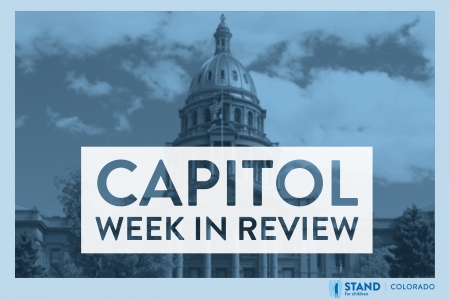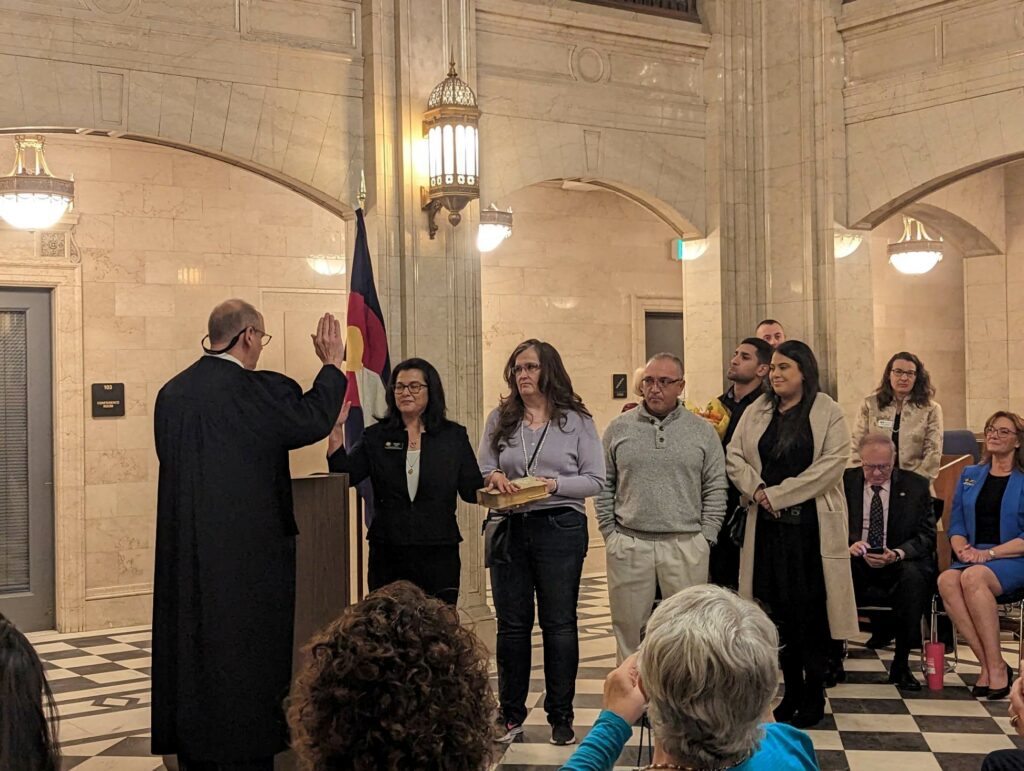The following is the prepared testimony of Bri Buentello, Stand Government Affairs Director, delivered before the House Education Committee Hearing on HB23-1001, Expanding Assistance For Educator Programs. HB23-1001 supports student teachers toward the goal of diversifying the teacher workforce and is a top priority for us this session. HB21-1001 was passed unanimously by the House Education Committee on January 26, 2023.
This legislation is a continuation of HB22-1220, Removing Barriers to Educator Preparation a bill we championed last session that paid for teacher exam fees, expanded pathways to licensure by allowing multiple ways to demonstrate competency, and paid teacher candidates for student teaching work.
Good afternoon Mr. Chair, House Education Committee Members, my name is Bri Buentello and I’m a former teacher and currently the Government Affairs Director with Stand for Children Colorado. Stand for Children is an education advocacy and racial justice nonprofit that supports parents, teachers, and community members in their fight for excellent public schools and systems changes that directly impact all of Colorado’s kids.
Last year, we were proud to support HB22-1220 under the leadership of Rep. Kipp, alongside our friends in post-secondary education. Parents, teachers, and even Ph.D.s all understand the importance of not only having culturally competent teachers, but also the intrinsic value of having a diverse teacher workforce and the overwhelmingly positive impact on all students.
What is discussed less often are the profound impacts that financial barriers have on education candidates and how much harder it is for BIPOC students from low socio-economic standing to attain this degree. In addition to just the tuition costs, there are oftentimes fees associated with attaining teacher licensure and still further, and larger expenses as student teaching is unpaid and women like me are forced to take out more student loans, all so we can serve our community.
HB22-1220 was a monumental step forward in the right direction, HB23-1001 continues this momentum by expanding the program to even more of Colorado’s teachers. Some notable changes include: 1) increased eligibility for student teachers in rural teaching placements; 2) student loan forgiveness for principals and special service providers, 3) finally, it also expands the eligibility for financial assistance for testing fees and costs associated with student teaching. The bottom line is: more middle-class students will be eligible for assistance under the provisions of this bill.
While diversifying the teacher workforce has been a priority for Colorado’s schools for decades, and that law made huge strides by creating funds for paid student teaching, relief for testing fees, and even some student loan forgiveness. We’re so excited to see this work continue under Representatives Kipp and McLachlan’s leadership and are looking forward to seeing the implementation of this bill for impact.
In closing, good bill, vote yes on HB 23-1001.




















